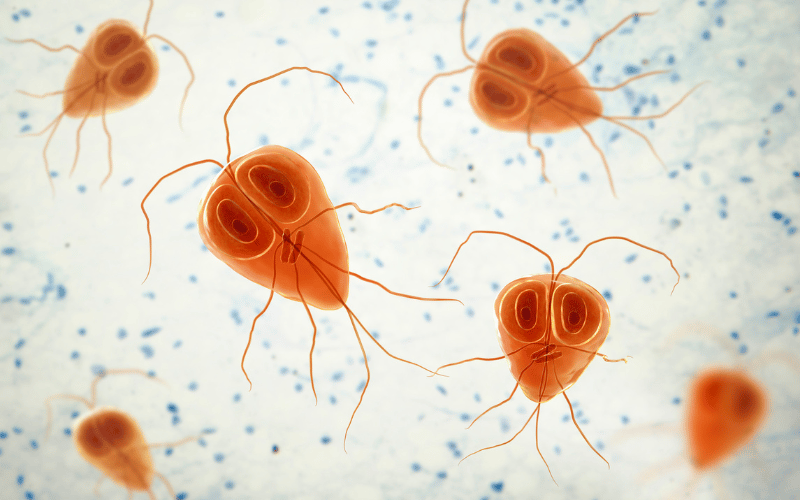3. Protozoan Prowess: The Case of Giardia and Cryptosporidium

You’re hiking near a stream, feeling one with nature, and you decide to take a sip of what looks like pristine water. What you don’t know is that lurking in that water are protozoa like Giardia and Cryptosporidium, microorganisms that can hijack your digestive tract and take you on a rollercoaster of gastrointestinal turmoil.
Giardia is a single-celled parasite that attaches itself to the lining of your small intestine. Here’s the kicker: it forms cysts, basically sleeping cells, that can live in the environment for months, waiting for a new host. It doesn’t just hit humans; even your pets can be carriers. Cryptosporidium operates in a similar fashion but takes its modus operandi a step further. It has a protective outer shell that allows it to survive outside the body for long periods and makes it resistant to chlorine disinfection.
Now, why do they cause gastroenteritis? Once these microscopic parasites enter your digestive system, they multiply and interfere with nutrient absorption. So while you’re consuming food, your body is unable to extract the nutrients it needs, leading to diarrhea and weight loss. The symptoms might not manifest immediately; in fact, they can take up to two weeks to appear, making it hard to pinpoint the cause.
Giardia and Cryptosporidium are incredibly stealthy. They can be present in seemingly safe environments like well-treated pools or water supply systems. Giardia is the most commonly diagnosed intestinal parasitic disease in the United States. In one major outbreak in Milwaukee, over 400,000 people fell ill due to Cryptosporidium-contaminated water. Talk about sneaky and widespread. (3)